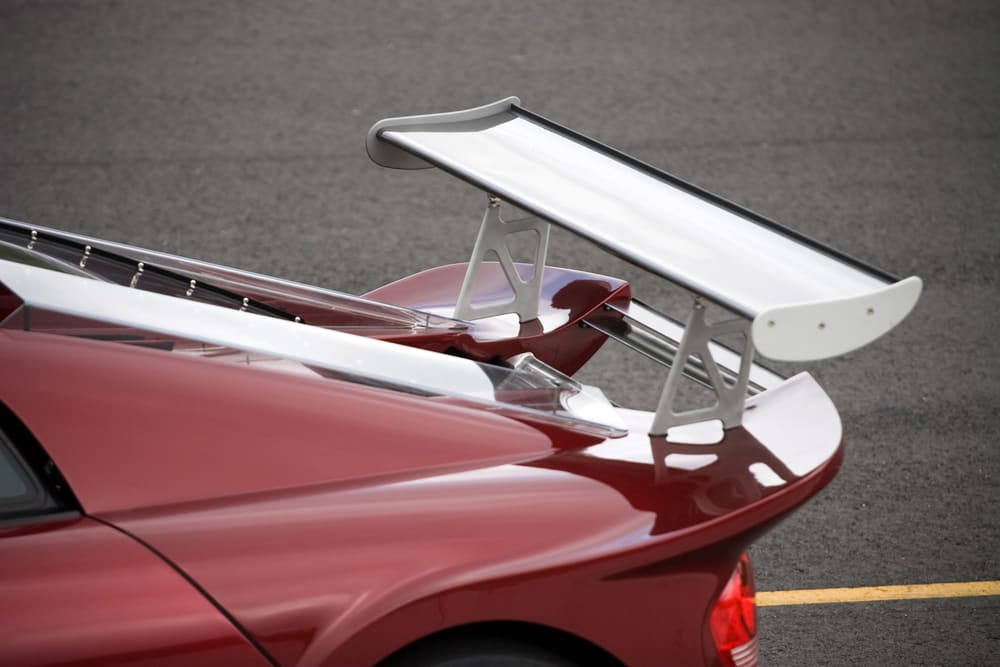

ARENA Creative / Shutterstock.com
Tennessee has a variety of laws and regulations in place that cover modified vehicles. If you live in the state or will soon move there, you need to be sure that your modified car or truck is considered street legal when driving on the roadways throughout the state.
Sounds and noise
Tennessee has laws in place that limit the noise levels that you your vehicle can make. Failing to follow these rules can result in a misdemeanor charge and a $50 fine for each offense.
Sound systems
Listening to your sound systems at high enough volumes to disturb the peace or cause irritation or affect the comfort and repose of reasonable people in the area is considered unlawful.
Sound systems cannot be audible from 50 feet away when on public streets or 50 feet beyond the property line on private property.
It is unlawful to produce sound that is audible at 100 feet between 10 PM and 7 AM Sunday through Thursday and 11 PM and 7 AM on Fridays and Saturdays. In residential areas, the distance is lessened to the adjacent property line.
Mufflers
- Mufflers are required on all vehicles and have to prevent unusual or excessive noise.
- Mufflers cannot be modified to produce loud or explosive noises.
Tip: Always check with local county laws in Tennessee to make sure you are following any municipal noise ordinances that may be more stringent than state-level laws.
Frame and suspension
Tennessee also has limits in place regarding the suspension and height of modified vehicles.
Vehicles can be no taller than 13 feet 6 inches.
Front lift blocks are not permitted.
4x4 vehicle bumpers have a maximum height of 31 inches and a minimum height of 14 inches.
Passenger vehicles have a maximum bumper height of 22 inches (no minimum is defined).
Tennessee also limits vehicle frame height based on Gross Vehicle Weight Ratings (GVWR).
- Cars and SUVs – 22 inch maximum frame height
- Less than 4,501 GVWR – 24 inch maximum frame height
- 4,501-7,500 GVWR – 26 inch maximum frame height
- 7,501-10,000 GVWR – 28 inch maximum frame height
Engine
Tennessee does not have regulations on engine swaps and modifications. Emissions testing is required in several counties. Visit the Department of Environment & Conservation website for information on station locations and schedules.
Lighting and windows
Lights
Passenger vehicles cannot display a combination of red, blue, and white lights.
Red or blue lights, including those that are “tinted” are not permitted on vehicles other than those used by law enforcement.
Two auxiliary lamps are permitted.
Non-emergency vehicles are not permitted to have flashing lights other than those installed at the factory.
Window tinting
Non-reflective tint is permitted on the windshield above the AS-1 line from the manufacturer.
Mirrored and metallic/reflective tints are not permitted.
Front side, back side, and rear windows must allow over 35% of light to pass through.
Sticker identifying legal tint levels is required on the driver side window between the glass and film.
Antique/classic car modifications
Tennessee offers antique vehicle plates that have the following requirements:
Vehicle must be over 25 years old.
Vehicle can only be used for daily or general driving on Saturday and Sunday.
Driving to exhibition, club activities, tours, parades, displays, and travel for repairs or refueling are permitted.
If you want to make sure your vehicle complies with Tennessee law, YourMechanic can provide the mobile mechanics to help you install the new parts. You can also ask our mechanics what modifications may be best suited to your car using our free online Q&A system, Ask a Mechanic.



